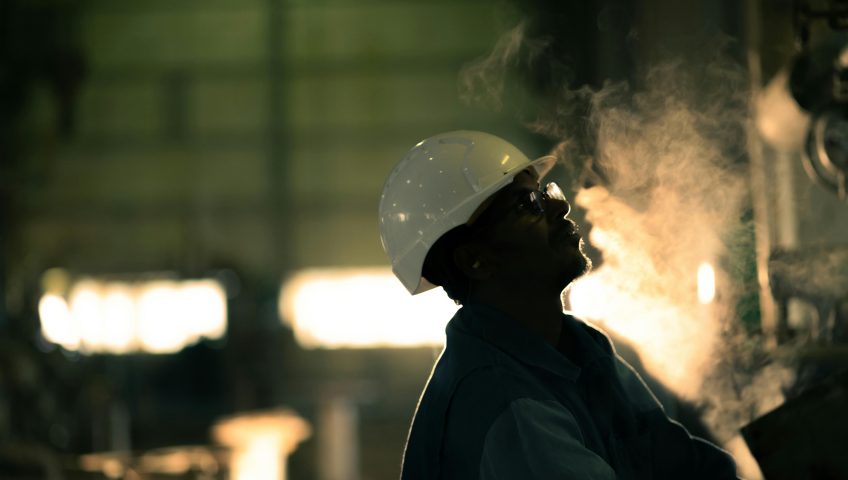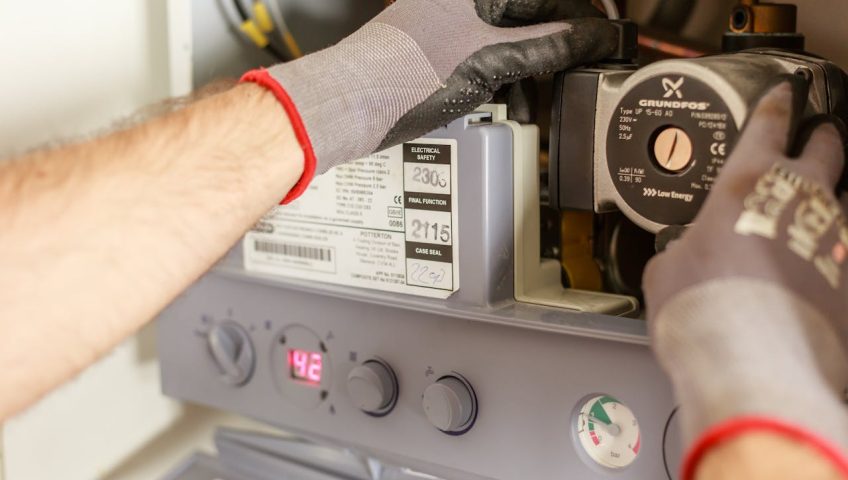
5 Signs Your Boiler Needs an Emergency Call‑Out in London
Boilers are one of the most critical components of any home or commercial property in London, providing reliable heating and hot water. A sudden breakdown can quickly disrupt daily routines, leaving your home cold, water unavailable, or even posing safety risks. While some boiler issues can be resolved with routine maintenance or minor repairs, others require an urgent, emergency call-out from a certified professional. Recognizing the signs that your boiler may be in serious trouble is essential for ensuring safety, preventing further damage, and restoring functionality as quickly as possible. In this article, we outline five key warning signs that indicate your boiler requires immediate attention and provide guidance on how to respond effectively.
Why Emergency Boiler Services Are Important
Emergency boiler services are not just a convenience they are a critical safety measure. Boilers rely on combustible gas and pressurized water systems to operate. Malfunctions, leaks, or component failures can create hazards such as gas leaks, carbon monoxide exposure, water damage, or even electrical faults. Ignoring warning signs or attempting to fix complex issues yourself can be extremely dangerous.
Certified gas boiler fitters near me have the expertise, tools, and certifications to diagnose problems accurately, isolate hazards, and perform safe repairs or temporary solutions to restore heating and hot water. Emergency call-outs prioritize rapid response, often resolving the most urgent issues within hours. Engaging a trusted boiler installation service like Westgas service ensures that your boiler is returned to safe operation while protecting your property, family, and peace of mind.
Sign 1: Unusual Noises from Your Boiler
Boilers normally make some sound while operating, such as low humming or gentle clicks when the system starts and stops. However, persistent or unusual noises are often a warning sign that something is wrong. These noises might include:
- Banging or clunking: Often caused by trapped air in the system or kettling due to limescale buildup in the heat exchanger.
- Whistling or hissing: Could indicate leaks or pressure issues within the system.
- Gurgling or bubbling: May result from circulation problems or sludge accumulation in the pipes.
While some noises can be minor, persistent sounds usually indicate that a component is failing or that the system is under stress. If left unaddressed, these issues can cause permanent damage to the boiler or associated pipework. Contacting a boiler installation service immediately can prevent escalation and ensure that the system continues to operate safely. Certified technicians can identify the root cause of the noise, remove trapped air, flush out sludge, or replace faulty components efficiently.
Sign 2: Loss of Heating or Hot Water
One of the most noticeable signs that your boiler requires an emergency call-out is a sudden loss of heating or hot water. This can be particularly inconvenient during cold months or in commercial buildings where consistent heating is essential. Causes of this issue can include:
- Ignition failure: The boiler fails to light, preventing water from heating.
- Thermostat malfunctions: Incorrect readings or faulty thermostats can stop the boiler from functioning.
- Circulation problems: Blocked pipes or a failing pump can prevent hot water from circulating properly.
- Gas supply interruptions: Issues with the gas line can prevent the boiler from operating.
Immediate professional attention is necessary to restore service safely. Experienced gas boiler fitters near me can diagnose the specific cause, repair or replace faulty parts, and verify that the boiler is operating efficiently. Timely intervention minimizes disruption, prevents additional damage, and ensures that heating and hot water are quickly restored.
Sign 3: Leaks or Visible Water Damage
Water leaks around your boiler or associated pipework are a serious warning sign that requires urgent attention. Even small leaks can lead to a host of problems, including:
- Structural damage: Persistent water exposure can damage walls, floors, and ceilings.
- Corrosion: Leaking water can corrode internal components of the boiler, leading to expensive repairs or replacement.
- Electrical hazards: Water near electrical connections can create short circuits or risk of electrocution.
Leaks often originate from corroded pipes, faulty valves, or worn seals. A certified Westgas service technician can quickly identify the source of the leak, repair the issue, and conduct a full system check to prevent recurrence. Emergency intervention reduces the risk of significant property damage and ensures that your heating system continues to operate safely.
Sign 4: Strange Smells or Gas Odors
Detecting strange smells, particularly gas odors, around your boiler is one of the most urgent warning signs of a potential emergency. Possible causes include:
- Gas leaks: Faulty pipes or valves may allow natural gas to escape.
- Carbon monoxide: Although carbon monoxide is colorless and odorless, leaks in some systems may produce associated chemical odors.
- Electrical or chemical smells: Malfunctioning components can produce burning or chemical odors.
If you notice any unusual smells, evacuate the premises immediately and contact us at Westgas service. Certified gas boiler fitters near me are trained to handle gas emergencies safely, isolate the source of the leak, and repair or replace the affected components. Acting quickly in these situations is critical to prevent health risks, property damage, and potential explosions.
Sign 5: Frequent Pressure Fluctuations
Boilers operate within a specific pressure range, usually indicated on the pressure gauge. Significant or recurring pressure fluctuations are a clear warning sign that the system may require an emergency call-out. Common causes include:
- Leaks in the system: Water escaping from pipes or valves can cause pressure drops.
- Faulty pressure relief valves: Malfunctioning valves may trigger irregular pressure changes.
- Circulation pump issues: Inefficient pumps can disrupt pressure and water flow.
Pressure problems can prevent the boiler from functioning properly, leading to incomplete heating cycles or system shutdowns. A professional boiler installation service can assess the system, repair faulty components, and ensure that pressure is correctly regulated, preventing further emergencies.
What to Expect During an Emergency Call-Out
Emergency boiler services are structured to provide rapid assessment and safe solutions. During an emergency visit, technicians typically follow these steps:
- Assessment and Diagnosis: The technician inspects the boiler, checks pressure, examines pipework, and identifies the root cause of the problem.
- Immediate Safety Measures: If necessary, the gas supply is isolated, the affected area is secured, and immediate hazards are addressed.
- Temporary or Permanent Repairs: Depending on the nature of the issue, technicians may perform immediate fixes to restore functionality or recommend a replacement.
- Testing and Verification: After repairs, the system is tested to ensure it is operating efficiently, safely, and in accordance with regulations.
Working with certified professionals like Westgas service guarantees that all work is carried out according to the highest safety standards, reducing the likelihood of further emergencies and providing peace of mind.
Table: Common Boiler Issues and Emergency Actions
| Issue | Possible Cause | Recommended Action |
| Unusual noises | Trapped air, limescale, pump issues | Call emergency service immediately |
| Loss of heating or hot water | Ignition failure, thermostat issues | Contact certified technician |
| Leaks or water damage | Corroded pipes, faulty valves | Shut off water and arrange emergency repair |
| Gas odors or strange smells | Gas leak, carbon monoxide | Evacuate and contact us immediately |
| Pressure fluctuations | Valve faults, leaks, circulation problems | Schedule urgent inspection |
Tips for Preventing Boiler Emergencies
While emergencies can happen, regular maintenance and vigilance significantly reduce the risk. Consider the following preventive measures:
- Annual Servicing: Schedule yearly inspections with a certified boiler installation service to detect potential issues early.
- Monitor Warning Signs: Keep an eye out for unusual noises, water leaks, pressure changes, or odors. Early detection often prevents emergency call-outs.
- Install Safety Detectors: Smoke and carbon monoxide detectors provide an early alert for dangerous situations.
- Maintain Clear Access: Ensure the area around your boiler is free from obstructions for easy inspection and repair.
Proactive measures increase system longevity, reduce the likelihood of emergencies, and ensure your boiler operates efficiently and safely.
Conclusion
Boiler emergencies in London can be disruptive, dangerous, and expensive if not addressed promptly. Recognizing the top five warning signs unusual noises, loss of heating or hot water, leaks, gas odors, and pressure fluctuations enables homeowners and businesses to take timely action. Engaging certified gas boiler fitters near me and a reliable boiler installation service like Westgas service ensures safe, professional, and efficient repair or maintenance.
For urgent assistance or to schedule a service, contact us at Westgas service and ensure that your boiler is safe, functional, and ready to operate reliably year-round.
FAQ Section
Q1: How quickly can an emergency boiler technician respond?
A: Certified services like Westgas service prioritize urgent calls to restore heating and hot water as quickly as possible, often within a few hours.
Q2: Can minor boiler issues escalate into emergencies?
A: Yes. Ignoring small leaks, unusual noises, or pressure fluctuations can lead to complete system failure or safety hazards.
Q3: How do I find reliable gas boiler fitters near me?
A: Search for certified technicians with emergency service availability. You can contact us at Westgas service for fast and professional assistance.
Q4: Is it safe to attempt boiler repairs myself?
A: No. Gas boilers contain pressurized water and combustible fuel. Only certified professionals should perform repairs to prevent accidents.
Q5: How often should boilers be serviced to avoid emergencies?
A: Annual servicing is recommended to maintain efficiency, detect faults early, and ensure compliance with safety standards.


Recent Comments